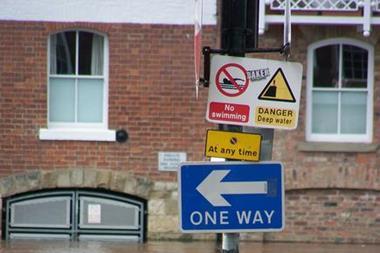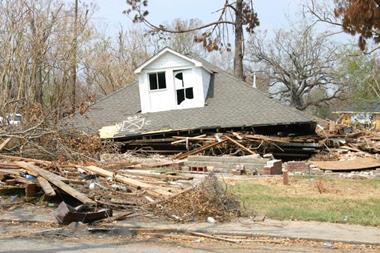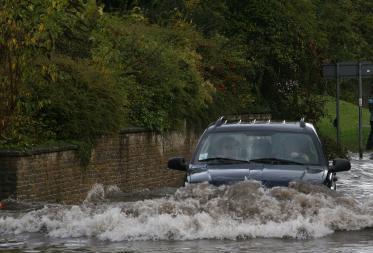Businesses concerned by the growing frequency of floods should have an effective response plan, says the UK's Environment Agency
Reducing the risks and adverse consequences of floods is the aim of a new European directive on flood risk management, which was adopted in April and came into force yesterday.
For the UK’s Environment Agency (EA), flood risk management has been a major priority since the Easter floods of 1998, which bought severe disruption to many low-lying areas in central England. Worse still in July 2007 when the UK experienced its most severe flooding in more than 60 years, the insurance bill was an estimated £3bn.
Concerned at the growing frequency and severity of flooding, the EA has been running flood awareness campaigns—with a strong emphasis on recruiting businesses, particularly SMEs, to their flood warning service.
So far, take-up of the scheme has been disappointing: Only 24% of those businesses who were asked have actually decided to sign up.
Research from the EA found—to no great surprise—that in the main businesses fail to prepare for flooding because adopting the attitude of “it won't happen to us” may be easier in the short term.
‘A lot of businesses have other priorities and pressures so they don’t necessarily think of flooding…the core aims of the Environment Agency are to overcome this apathy and denial,’ said Heena Dave, EA flood awareness campaign manager.
Further to this aim, the EA recently teamed up with property insurer FM Global to launch a flood risk management report, called Flood: An inevitable business risk.
“While insurance can mitigate the financial loss, it cannot restore lost customers, employees or your business reputation
Tom Roche, vice president of operations and engineering manager for FM Global
‘Many managers are willing to roll the dice where flooding is concerned. The reality is quite the opposite; if your company is located in a published flood zone, you’re at risk now.’ said Tom Roche, vice president of operations and engineering manager for FM Global, author of the report.
The report recommends a number of practical approaches—such as physically elevating business critical operations—to help mitigate the risks as well as helping to maintain business operations in the event of a flood.
Roche recommends that businesses at least use the EA’s flood mapping software to check if they are in an active flood zone: ‘It takes no more than 5 minutes to find out if you’re in an active flood plain.’ He thinks the number of UK businesses in active flood plains could be as high as 1 in 10, and, judging from his own research at least a third of these are not adequately prepared.
Recent findings from a FM Global study suggest that preplanning can lead to a steep reduction in the loss cost of a flood. The study found that companies with no response plan—or an ineffective one—suffered an average gross loss of £2.1m. Companies that did have an effective response plan in place suffered an average gross loss of £600,000, a reduction of 71%.
‘While insurance can mitigate the financial loss, it cannot restore lost customers, employees or your business reputation,’ warned Roche.
He added that businesses should not assume they are safe just because they are in an area protected by flood defences or not classified as a flood zone. As this month’s North Sea storm surge revealed, flood defences can be breached. At the beginning of November, ten metre high waves forced Rotterdam to close its floodgates for the first time ever and the UK to begin evacuating residents in eastern England.
Firms should also take into account the more subtle consequences of a crisis including the psychological impact on an organisations workforce: ‘It’s easy to underestimate just how stressful recovering from a flood can be for staff,’ said Roche. Making sure your staff are safe is an important element of the employers duty of care, added Dave.




















No comments yet